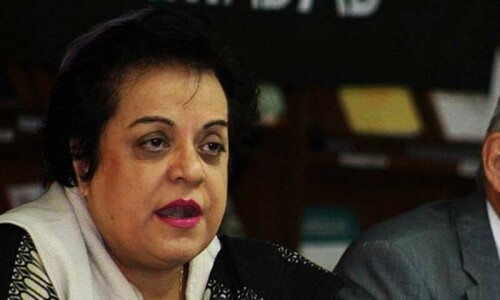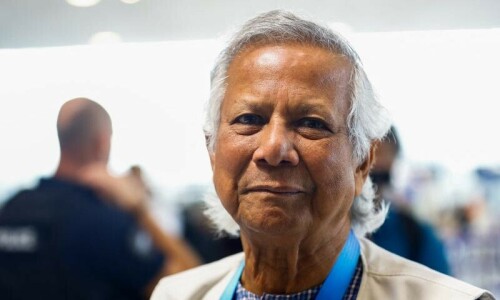ISLAMABAD The remote region of Torghar in Balochistans north-eastern district of Qilla Saifullah is the unlikely setting for a pioneering project that combines innovative environmental conservation methods with the principles of sustainable development.
Torghar is one of the last remaining natural habitats of the Suleiman Markhor and Afghan Urial in Pakistan.
Although the Markhor has become iconic as Pakistans national animal, it remains on the International Union for the Conservation of Natures (IUCN) list of threatened species.
The Suleiman or Straight horned Markhor is a rare sub-species, indigenous to the Toba Kakar Mountains of North-Eastern Balochistan.
In 1986 there were just 56 documented Suleiman Markhors and 100 Afghan Urials left in Pakistan, with almost no government efforts to check the illegal hunting of both animals, which are listed as protected animals under the Balochistan Wildlife Protection Act of 1974.
Luc Bellon, a French anthropologist who has done extensive field research on both Baluch and Pashtun culture, provides a fascinating account of an NGO called STEPs (Society for Torghar Environmental Protection) efforts to promote conservation and development, with local communities in Torghar.
He provides detailed documentation of how the organization mobilized local communities to take ownership of conservation efforts of the Suleiman Markhor and Afghan Urial, while simultaneously addressing the urgent need for development in the area.
A volatile geo-political situation, endemic poverty, drought and frequent inter-tribal warfare, posed a formidable challenge for STEP, initially called the Torghar Conservation Project (TCP), when it started its work in the area in 1985.
However, it did not take long for the STEP to convince local communities about the economic benefits of conservation.
The project has transformed the Pashtun tribes of Torghar from traditional hunters into active conservationists by initiating the concept of regulated trophy hunting and creating economic incentives for communities to undertake conservation efforts.
The revenue raised from the trophy hunt permits is used by local communities to finance a wide range of local development and conservation efforts.
STEP was initially supported by a grant from the Global Environment Facilitys Small Grant Program (GEF-SPGM) and subsequently by the Balochistan Species and Habitat Project.
It has evolved into a unique example of a self-sustaining project with minimal financial or technical support from donor agencies.
The transformation in Torghar has been remarkable. It is no longer just another isolated and underdeveloped community in Balochistan.
Just a few years back, the people of the area had no access to primary education, health facilities or even road connections to the nearest town.
Now the people of Torghar can now boast the presence of both a girls and a boys school, water for crop cultivation, and human consumption, and access to roads.
The funds generated from conservation efforts are also helping local communities meet the medical needs of community members who have fatal diseases in nearby hospitals.
Communities are also supporting the youth of Torghar to obtain a secondary education in nearby towns, and helping local employment, as an increasing number of people have become game guards involved in the protection of local wildlife.
In 2000, there were 1600 Suleiman Markhor and 1700 Afghan Urial in Torghar, reported in Torghar, making the area home to the highest concentration of straight-horned Markhor in the world and of Urial in Pakistan.
Alvaro Rodriguez, Country Director UNDP mentioned that Luc Bellons book is an important and timely account of a joint collaboration between an NGO and a local community to bring about social change in the face of formidable obstacles.
The study highlights the inter-linkages between natural resources and wellbeing of local communities and will be of interest to all those who believe sustainable development can occur through community efforts at a grass-roots level.
Through a joint effort by UNDP, STEP and the local community, the Suleiman Markhor and Afghan Urial now have a future in Torghar and could be the inspiration for similar conservation efforts across Pakistan, the UNDP chief said.












































Dear visitor, the comments section is undergoing an overhaul and will return soon.